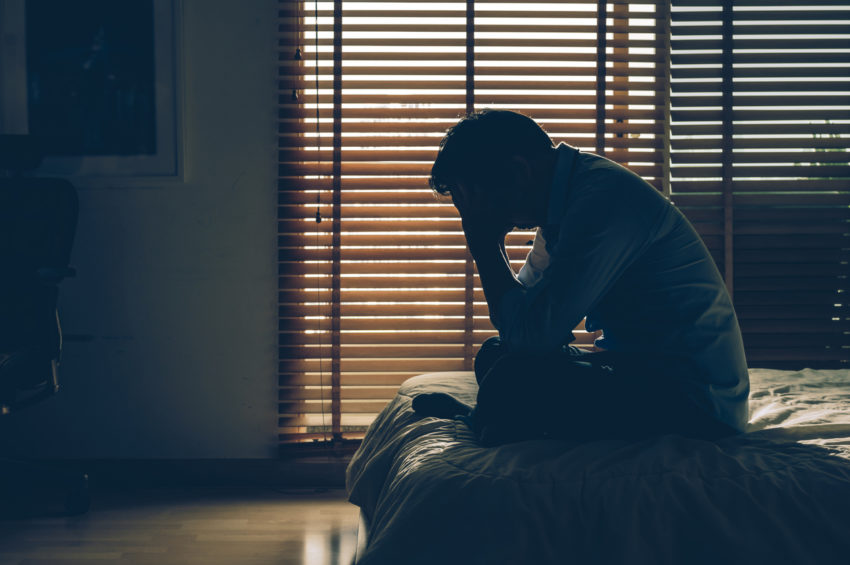
Share On Social!
Latinos and other people of color often have untreated and unaddressed mental illnesses.
This is due to a variety of reasons, such as a stigma against mental illness, distrust in mental health services, or lack of access to treatment.
As we discover more barriers to mental health treatment, we can become aware of how to bring equity and greater access to culturally competent mental health treatment.
How Latinos Compare to Other Groups with Mental Health Treatment
Latinos and other people of color are less likely to seek treatment for mental illnesses compared to white people.
“Among U.S. adults with mental disorders, racial/ethnic minorities are only half as likely as Whites to get treatment; they are also more likely to drop out before completing their treatment,” according to an article from the National Institute on Minority Health and Health Disparities (NIMHD).

A recent study from NIMHD showed that:
- Latinos are more likely not to receive treatment for mental disorders compared to Black or white people.
- Latinos are more likely to report that they did not think they needed treatment compared to Black or white people.
- Latinos are more likely to drop out of their mental health treatments compared to Black or white people.
Unfortunately, Latino children are also more likely than their peers to have mental health issues and do not receive adequate treatment.
“22% of Latino youth have depressive symptoms. That is higher than any group besides Native American youth. Fewer Latino parents reported that their child had ever used mental health care services (8%) compared to white children (14%),” according to a Salud America! research review.
Adding to the issue is the rise of the COVID-19 pandemic.
A recent poll found that over 20% of Latinos say they are suffering from increased anxiety due to COVID-19 and related lockdowns, while 15.7% say they suffer from increased stress.
In addition to COVID-19, we know that Latinos experience more mental health issues from discrimination, the stresses of immigration, and family and community stressors.
But why do Latinos receive less mental health treatment or drop out of mental health treatment?
Why Latinos Receive Less Mental Health Treatment
There are a multitude of reasons why Latinos and other people of color are less likely to receive mental health treatment.
Often, the decision stems from not wanting treatment.
“The survey asked about reasons for not seeking treatment or for discontinuing treatment early. Some reported reasons were that the respondents wanted to handle the problems themselves, did not think their problems were severe, or did not believe that the treatment would work,” according to the article from the NIMHD.
Instead of seeking treatment from a mental health professional, Latinos may turn to other sources of healing in the community.

“There’s a culture of privacy and secrecy in some of our communities. They get upheld generation to generation, or they may have alternative healing support that they seek, like going to church, or going to their priests, or other alternative routes,” said Cheryl Aguilar, Founding Director at the Hope Center for Wellness.
This may also be related to the stigma against mental illness and seeking help for mental health issues.
“There’s a certain stigma around mental health. We’re seeing a little bit of a decrease based on the community, the population that you are working with, or the age,” Aguilar said. “I think it’s typically the children of other generations that are coming to therapy. We’re seeing a rise of young millennial women coming to therapy and we’re seeing a rise of second-generation immigrants coming to therapy.”
Another major barrier is cost or lack of insurance.
“Other reasons cited were that people could not afford or access treatment, especially in disadvantaged neighborhoods with fewer health providers,” according to the article from the NIMHD.
Lack of diversity in the mental health workforce can also be a barrier.
In 2015, only 5% of psychologists were Latino and 4% were Black, according to a study by the APA.
This lack of diversity may contribute to implicit bias towards Latinos, who are more likely to experience discrimination in the doctor’s office.
Addressing these barriers to mental health services will help Latinos with untreated mental illnesses.
How Else Can We Advocate for Latinos and Mental Health Care?
Latinos and other people of color need equitable access to mental health care, which will require addressing several barriers.
One way to do so is by increasing the number of mental health professionals who are well-versed in Latino culture.
“Part of the barrier is that we don’t have enough providers to work with certain communities, like in the Latinx community. We don’t have enough bilingual and culturally competent providers to work with that community,” Aguilar said.
Having mental health professionals that are bilingual in Spanish and knowledgeable about the Latino community can make a big difference.
Another big barrier is accessibility, whether through cost or location.
Mental health providers should work with lower-income families to create a mental health program that doesn’t require high costs or health insurance. Mental health programs should also be available in culturally focused community groups.
“Community centers and nonprofit organizations that are easily accessible to immigrant families should consider incorporating culturally-relevant mental health programs into other programs, especially those that include physical activity and wellness,” according to a Salud America! research review.
Fortunately, we can do our part, too.
You can also advocate for your neighbors by downloading a Salud America! Health Equity Report Card.
The report card allows you to see what access your community has to food, healthcare, education, and other resources. You can help advocate for people with mental illnesses by presenting the Health Equity Report Card to your city’s leadership!
GET YOUR HEALTH EQUITY REPORT CARD!
Explore More:
Mental HealthBy The Numbers
142
Percent
Expected rise in Latino cancer cases in coming years




I know this is a two year old article, but Bias is another reason why some Hispanic people think about or attempt suicide. I’m actually part Filipino, German and English and I ended up looking stereotypically Hispanic and my surname is Spanish due to my Filipino side since the Spanish colonized the Philippines. I’m a woman though and I’ve thought about it for a number of reasons involving my health from a rare disorder that caused learning issues and also I have obvious cancer symptoms Ive tried getting help with. I’ve also been treated poorly and sometimes in very scary situations because of obvious Bias and Prejudice due to my appearance. I’m just saying Bias against people who are Hispanic and “look Hispanic” is a real thing. I apologize if it was in this article but I didn’t notice it, But I do apologize if its in there. I just think it needs to be addressed more. Thank You